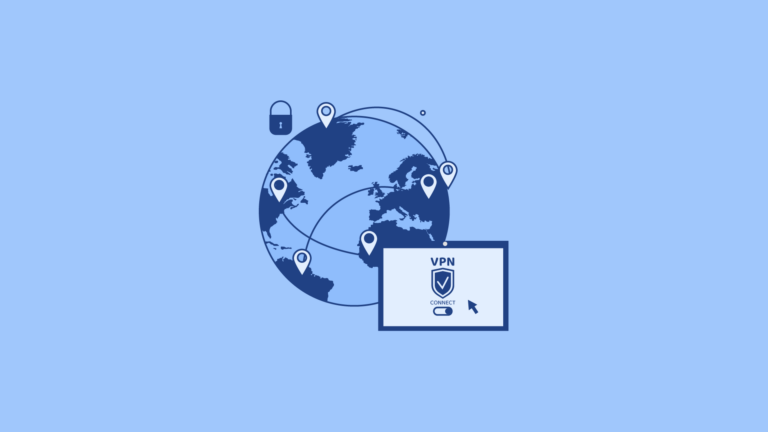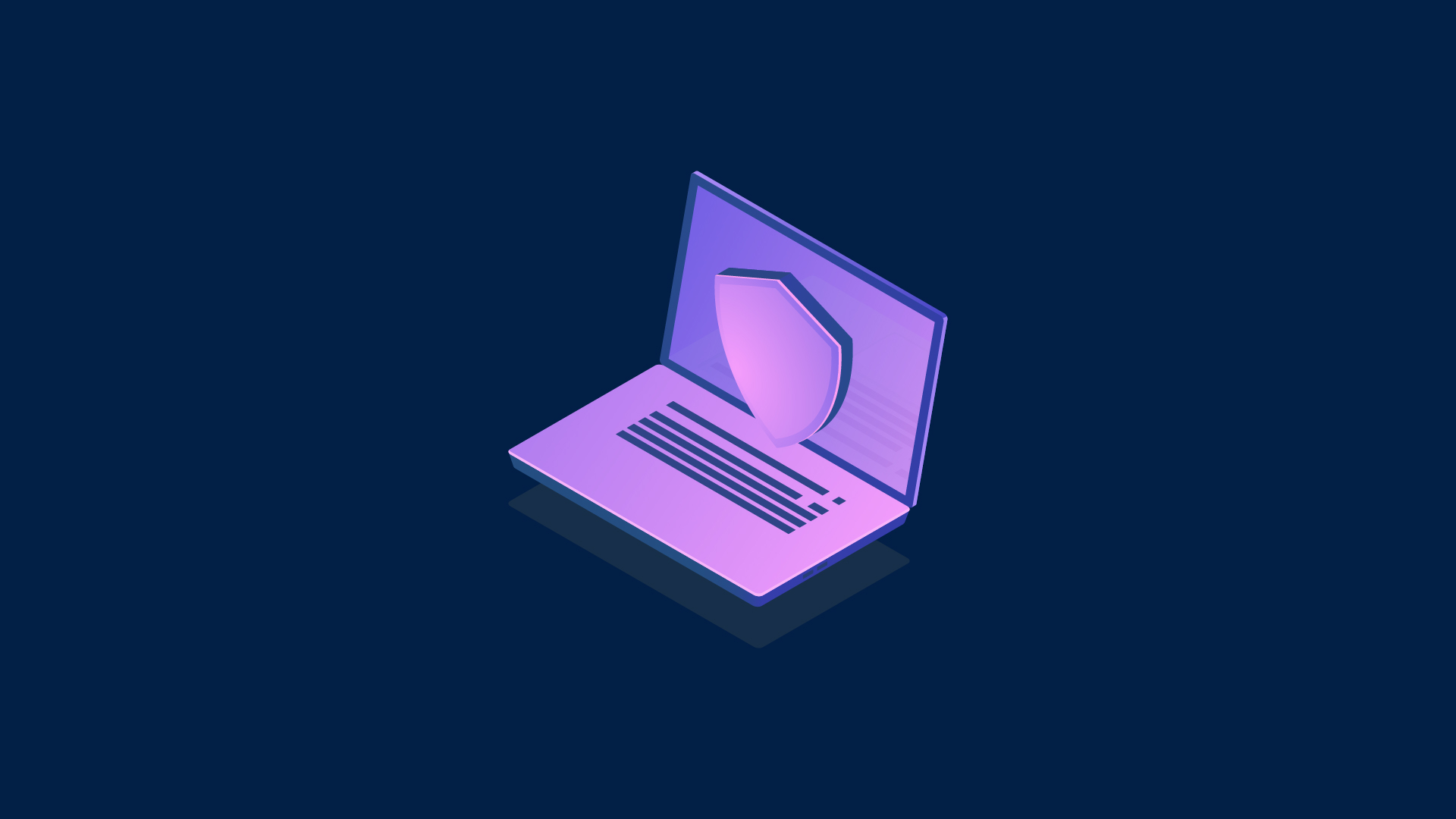|
Getting your Trinity Audio player ready...
|
In an era where the Internet is increasingly focused on privacy, cyberattacks continue to pose a threat to users. If you’ve considered arming yourself against the risk of data breaches, you may have wondered, “Is a VPN worth it?”
The answer is a resounding yes. Even in 2023, a VPN remains a valuable tool for safeguarding your online data. More than 31% of internet users worldwide use a VPN service. By altering your IP address, encrypting your online traffic, and offering advanced security features, a VPN ensures that your information remains secure. Additionally, VPNs enable users to access blocked sites, especially in countries with high levels of internet censorship.
In this article, we will delve into the advantages of using a VPN and provide important tips to help you select a provider that meets your specific needs. With the right VPN, you can navigate the online landscape with confidence, shielding yourself from cyberattacks and data breaches. However, be cautious of using a free service, such as free VPNs, as they often compromise user privacy by monetizing through the sale of activity logs and ads.
What is a VPN?
A Virtual Private Network (VPN) is a network service that allows you to securely access private networks from anywhere in the world. The main benefit of using a VPN is that it encrypts your data and makes it harder for hackers or spies to intercept it.
A VPN is a secure way to connect to the Internet through a public network such as the Internet. This means that your connection is encrypted, allowing you to browse privately and safely. It is a great way to share files, stream media, and even browse the web privately. In addition, a VPN can also provide additional security to your computer by encrypting data before sending it over the Internet. Using a VPN app is especially important when connected to free public Wi-Fi hotspots, as it safeguards personal data by encrypting internet traffic and protecting against potential threats posed by compromised networks.
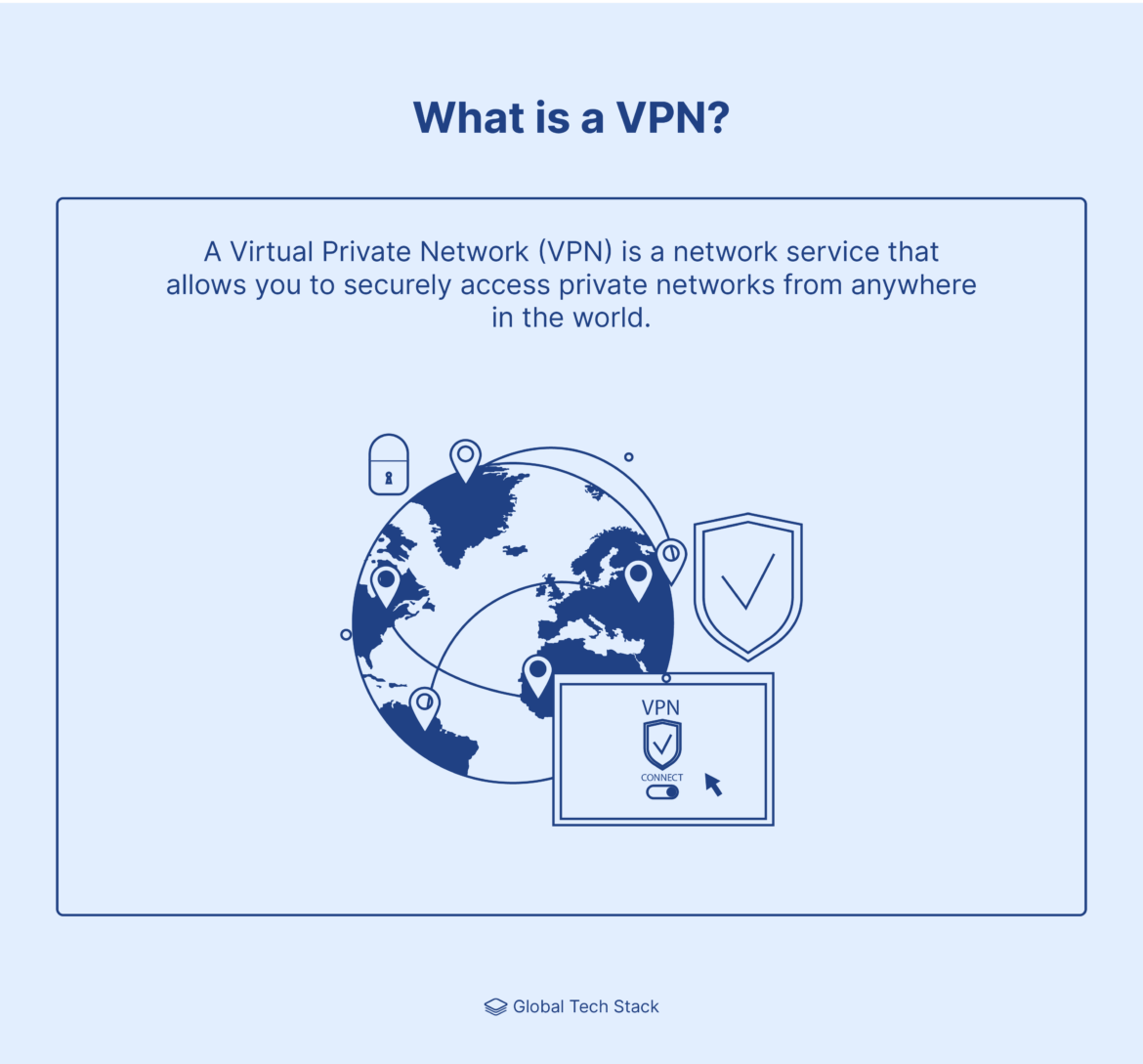
Advantages of Using a VPN
Here are some of the Advantages of having a VPN:
1. Increase Your Online Privacy (Data Privacy)
The biggest reason why you should use a VPN is that it protects your online browsing behavior. Your online security is still an important issue. A VPN conceals your real IP address while routing your internet traffic through a secure server, making it difficult for your Internet service provider (ISP) and any website you visit to trace your online activities back to you. What VPN software does is it changes your IP address and encrypts your traffic.
When venturing into the vast expanse of the internet, your valuable data becomes vulnerable to numerous prying eyes, ranging from trackers and your internet service provider (ISP) to government agencies and more. To safeguard your information from these threats, it is essential to utilize a trusted VPN that employs robust security measures, such as advanced AES-256 encryption and additional layers of protection.
Encryption is just one aspect of VPN technology. VPNs also employ secure tunnels, with protocols like WireGuard offering advanced functionality that minimizes the impact on connection speed while maintaining high-level security.
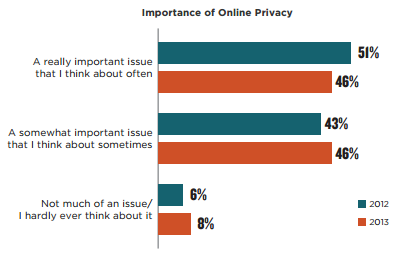
Equally important are the additional features provided by VPN services. For instance, specialty servers like Tor over VPN or Double VPN add extra layers of security and privacy to your online activities. The inclusion of a kill switch feature ensures that your IP address remains protected even in the event of a VPN connection drop.
A VPN is not only beneficial when using your home network but also when traveling or accessing public Wi-Fi. When you connect to an open Wi-Fi network without protection exposes your device to various security vulnerabilities, including the risk of a man-in-the-middle attack.
By employing a reputable VPN, you can confidently navigate the digital realm, shielded from prying eyes and potential security breaches.
2. Access Geo-Restricted Content
Another primary reason to use a Virtual Private Network is to unblock geo-restricted content, such as movies and in-game content. Premium VPNs like NordVPN or ExpressVPN allow you to choose from thousands of servers located in different regions around the world.
VPN servers can change users’ IP addresses to access a wider range of entertainment options and services, making it easier to bypass geo-restrictions.
When connected to a server in a different region, websites assume you’re located there, granting you access to exclusive content. For example, you can unblock platforms like Binance, even if they are not available in your country, by connecting to a VPN server located in a region where the platform operates.
VPNs prove to be an invaluable tool, particularly when you find yourself living or traveling outside the****confines of your home country. Without a VPN, you may encounter a peculiar situation where websites you visit are automatically localized to your current location, presenting content in different languages.
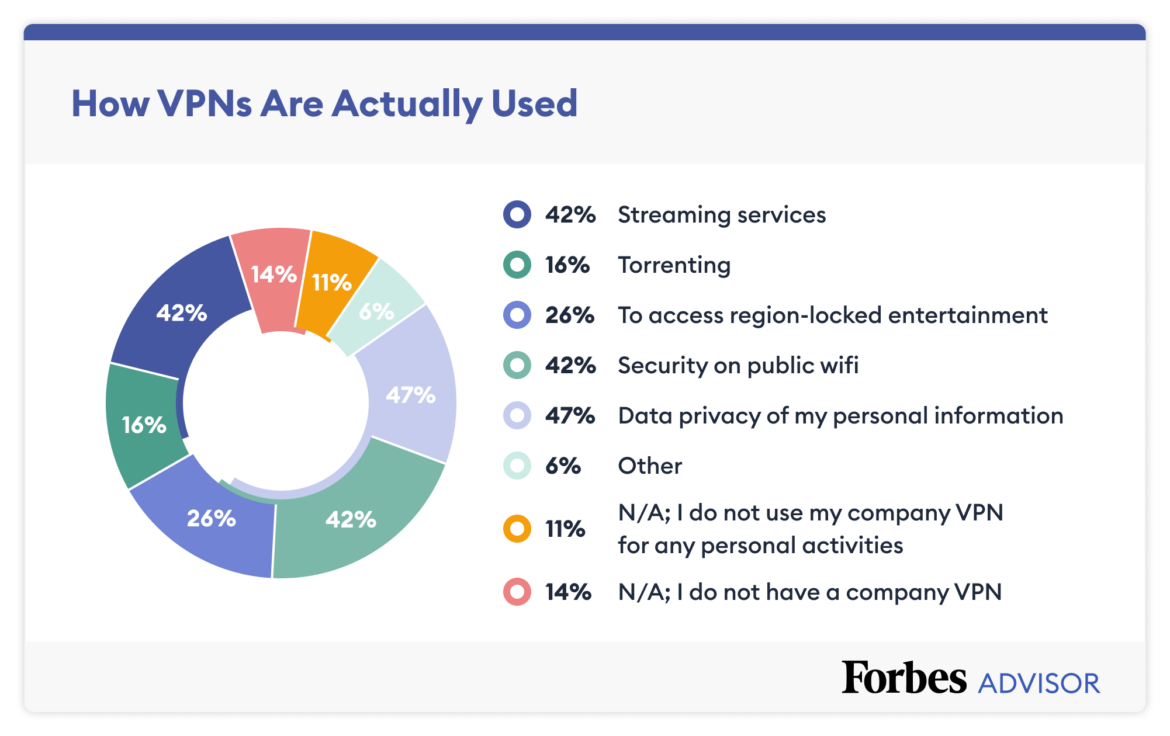
With the right VPN, you can bypass these restrictions and access content from virtually anywhere. For instance, let’s say you are an American traveling abroad and want to enjoy your favorite shows or movies on Netflix. Without a VPN, you may find that the content library available in your current location is limited.
By using a VPN service, you can virtually transport yourself back to the United States, granting you access to the complete range of Netflix’s offerings in your home country. In fact, certain VPN providers like NordVPN have gone a step further by creating specialized streaming servers optimized for popular platforms like Netflix, allowing users to enjoy content from different regions in stunning high-definition quality.
Beyond expanding your entertainment options, a VPN also provides an additional layer of security and privacy when accessing foreign locations on the internet.
By funneling your internet traffic through an encrypted tunnel, a VPN conceals your true identity and location. This becomes particularly crucial when connecting to public Wi-Fi networks, which are notorious for their vulnerabilities.
Whether you’re sitting at a café in Paris or a hotel lobby in Tokyo, using a VPN ensures that your personal information remains protected from potential hackers or cybercriminals lurking on the same network.
With a VPN, you can browse with peace of mind, knowing that your sensitive data is shielded and your online activities remain private.
3. Provide Advanced Security Features
Most VPNs offer a multitude of advanced security features to boost your privacy. A kill switch is a common feature that disconnects your device or specific apps from the Internet if your VPN connection stops working, ensuring that none of your important data or information is accidentally leaked.
When choosing a VPN service, it is crucial to review VPN services to ensure they meet your security needs and provide accurate recommendations.
Here are some key advanced security features to look for in a VPN service:
Kill Switch: A kill switch is an essential feature that ensures your privacy remains intact even if your VPN connection drops. It automatically cuts off your internet connection when the VPN connection is lost, preventing any unencrypted data from being transmitted. This feature is particularly crucial when you’re accessing sensitive information or using public Wi-Fi networks.
Split Tunneling: Split tunneling allows you to route your internet traffic selectively through the VPN while directing specific apps or websites outside of the VPN tunnel. This feature provides flexibility and control over which applications or services use the VPN and which ones don’t. It can be useful when you want to access local services or devices without compromising your protection.
DNS Leak Protection: DNS (Domain Name System) leaks can occur when your device bypasses the VPN tunnel and sends DNS requests directly to your ISP’s DNS servers. This can potentially expose your online activities. A VPN with DNS leak protection ensures that all DNS requests are routed through the encrypted tunnel, preventing any leaks and preserving your privacy.
Multi-Factor Authentication (MFA): While not all VPNs offer this feature, MFA adds an extra layer of security to your VPN login process. It requires you to provide multiple pieces of evidence to verify your identity, such as a password and a unique code generated by an authentication app on your smartphone. MFA significantly reduces the risk of unauthorized access to your account.
Ad Blocker and Malware Protection: Some services integrate ad-blocking and malware protection features into their applications. These features help to block intrusive ads, prevent tracking, and safeguard against malicious websites or downloads. While they may not replace dedicated ad blockers or antivirus software, they can provide an additional layer of protection during your online sessions.
RAM-based Servers: RAM-based servers are a security-oriented approach where a server’s data is stored only in the server’s random access memory (RAM) while it’s operational. This means that once the server is rebooted or powered off, all data is wiped, leaving no traces of your online activities. Opting for a VPN service that utilizes RAM-based servers adds an extra level of protection against data retention and potential security breaches.
These advanced security features significantly enhance the privacy and protection provided by a VPN. When choosing a VPN service, carefully review the available features and consider which ones are most important for your specific requirements.
A combination of these features will ensure that your online activities remain secure and your data stays protected from prying eyes.
4. Avoid ISP Throttling
Internet service providers (ISPs) often throttle your bandwidth and speed when you exceed your data limit or engage in prohibited activities like downloading torrents. This is only possible if your IP address is exposed. By using a VPN, you can hide your online activities from your ISP.
VPNs typically include DNS leak protection, which prevents your DNS requests from being leaked. As a result, your ISP won’t know what websites you visit, eliminating any reason to limit your speed or bandwidth.
While browsing the internet from the comfort of your own home network may seem relatively safe from hacking threats, there’s another entity you need to keep a watchful eye on: your internet service provider (ISP). ISPs have access to a vast amount of data about your online activities and can potentially exploit this information.
In the United States, the situation becomes even more disconcerting as the US Congress has granted ISPs the authority to sell your data to third parties. This means that your personal information and browsing habits could end up in the hands of unknown entities, which raises significant privacy concerns.
Unfortunately, many users have limited options when it comes to selecting an ISP. Depending on your location, you might find yourself with only one or two wired internet providers to choose from. A VPN can serve as a protective shield for your privacy, preventing ISPs from capitalizing on your internet usage data.
By encrypting your online traffic and routing it through a secure server, a VPN ensures that your ISP cannot monitor or access your browsing activities. It effectively creates a barrier that safeguards your data from being sold to third parties for profit.
VPNs can address ISP throttlinga common issue faced by internet users worldwide. ISPs have the capability to intentionally slow down your internet connection based on specific activities or data usage. This can lead to frustratingly slow speeds and hinder your online experience.
However, by employing a VPN, you can effectively circumvent ISP throttling. The VPN encrypts your traffic, making it indistinguishable to your ISP, thereby preventing them from selectively slowing down or limiting your connection speed.
Additionally, while VPNs offer secure connections, they can impact internet speed due to the additional data processing required. On average, users may experience a slight reduction in download speeds. However, VPNs can also mitigate bandwidth throttling by ISPs, ensuring a more consistent internet speed during high-demand periods.
In conclusion, using a VPN is not only crucial for protecting your privacy from ISPs’ data-selling practices but also for safeguarding your online activities in oppressive regimes. By encrypting your data, a VPN ensures that your browsing history remains private and inaccessible to prying eyes.
Moreover, it allows you to overcome ISP throttling, providing a smoother and more consistent internet experience. Whether you’re concerned about your personal information falling into the wrong hands or navigating restricted online environments, a VPN is an essential tool that empowers you to reclaim control over your online privacy and security.
5. Stream Blacked-Out Games
Sports companies frequently black out online live streams of their games due to licensing restrictions. With a VPN, you can change your IP address and connect to a server where the game you want to watch is available, bypassing these restrictions.
This is especially useful when you’re traveling and want to access content that is otherwise unavailable in your current location.
Many streaming platforms, such as Netflix, Hulu, BBC iPlayer, and Disney+, have licensing agreements that restrict their content to specific regions. This means that certain movies, TV shows, or live sports events may not be available in your country.
By using a VPN, you can connect to a server in a different country and make it appear as if you are accessing the website from that location. This allows you to bypass geo-restrictions and access a wider range of content.
6. Protect Yourself on Public Wi-Fi
Public Wi-Fi hotspots can be a convenient way to stay connected on the go, but they can also pose a significant risk to your online security. When you connect to a public Wi-Fi network, your internet traffic is transmitted over an unsecured connection, making it vulnerable to interception by hackers and cybercriminals. This can lead to identity theft, data breaches, and other malicious activities.
To protect yourself on public Wi-Fi, it’s essential to use a Virtual Private Network (VPN). A VPN encrypts your internet traffic, making it difficult for hackers to intercept and read your data. By connecting to a VPN server, you can ensure that your internet connection is secure and private, even on public Wi-Fi networks.
When choosing a VPN for public Wi-Fi, look for a provider that offers a secure and reliable connection. Consider the following factors:
Encryption: Look for a VPN that uses strong encryption protocols, such as AES-256, to protect your data.
Server Locations: Choose a VPN with a large number of servers in different locations to ensure that you can connect to a server that is close to you.
Speed: Opt for a VPN that offers fast speeds to ensure that your internet connection is not slowed down.
Customer Support: Consider a VPN that offers 24/7 customer support in case you encounter any issues.
By using a VPN on public Wi-Fi, you can protect yourself from cyber threats and ensure that your online activities remain private and secure.
Who Should Use a VPN?
A Virtual Private Network (VPN) is a useful tool for anyone who wants to protect their online privacy and security. However, some individuals may benefit more from using a VPN than others. Here are some examples of who should use a VPN:
Remote Workers: If you work remotely, you may need to access company networks and data from public Wi-Fi networks. A VPN can help protect your data and ensure that your internet connection is secure.
Travelers: When traveling, you may need to access public Wi-Fi networks to stay connected. A VPN can help protect your data and ensure that your internet connection is secure.
Online Shoppers: If you shop online, you may want to use a VPN to protect your personal and financial information from interception and hacking.
Gamers: If you play online games, you may want to use a VPN to protect your data and ensure that your internet connection is secure.
Journalists and Activists: If you are a journalist or activist, you may want to use a VPN to protect your online activities and ensure that your data is not intercepted by governments or other organizations.
Overall, anyone who wants to protect their online privacy and security should consider using a VPN.
What to look for in a VPN service
When choosing a VPN service, there are several key factors to consider to ensure you find the right one that meets your specific needs. Here are some important aspects to look for in a VPN service:
Security and Privacy: The primary purpose of a VPN is to enhance your online security and privacy. Look for a VPN that offers robust encryption protocols, such as AES-256, to protect your data from interception and unauthorized access. Additionally, ensure that the VPN has a strict no-logs policy, meaning they don’t keep any records of your online activities.
Server Network: A large and diverse server network is crucial for a VPN service. The more servers and locations available, the better chance you have of finding a server that suits your specific needs, such as accessing geo-restricted content or maintaining fast connection speeds. Look for a VPN with servers in multiple countries and regions.
Connection Speed and Performance: A VPN should not significantly slow down your internet connection. Opt for a VPN that offers fast and reliable speeds, as this is essential for activities like streaming, gaming, or downloading large files. Some VPN providers offer server optimization and dedicated streaming servers to ensure optimal performance for specific activities.
User-Friendly Interface: A user-friendly VPN interface makes it easier for you to navigate and customize your VPN settings. Look for a VPN service that offers intuitive apps for various devices and operating systems. A user-friendly interface will enhance your overall experience and make it simpler to connect and configure your VPN.
Device Compatibility: Consider the devices you plan to use with the VPN and ensure that the service is compatible with those devices. Most VPNs offer apps for popular platforms like Windows, macOS, iOS, and Android. Additionally, check if the software provider allows multiple simultaneous connections, as this enables you to protect multiple devices with a single subscription.
Customer Support: Reliable customer support is crucial if you encounter any issues or have questions regarding your VPN service. Look for a VPN provider that offers multiple support channels, such as live chat, email, or a comprehensive knowledge base. Prompt and helpful customer support can make a significant difference in resolving any concerns or technical difficulties.
Additional Features: Consider any additional features or functionalities offered by the VPN service. Some common features include a kill switch (which cuts off internet access if the VPN connection drops), split tunneling (which allows you to route specific traffic through the VPN while excluding others), and ad-blocking or malware protection. Assess these features based on your specific needs and preferences.
Pricing and Plans: Compare the pricing plans of different VPN services to ensure you get the best value for your money. Most VPNs offer various subscription options, including monthly, yearly, or multi-year plans. Look for discounts, free trials, or money-back guarantees that allow you to test the service before committing.
By considering these factors and evaluating VPN services based on your specific requirements, you can find a reliable and secure VPN service that protects your online privacy, grants access to geo-restricted content, and provides an overall seamless browsing experience.
The Best VPN Software to Use (We Recommend)
When it comes to choosing a VPN provider, it is important to select a reputable and reliable service that meets your specific needs. While there are many excellent VPN options available, a few stand out in terms of their features, security, and user-friendly interfaces.
ExpressVPN: Known for its blazing-fast speeds, strong encryption, and vast server network, ExpressVPN is consistently ranked among the top VPN providers. It offers a user-friendly interface, excellent customer support, and supports a wide range of devices and operating systems.
Surfshark: Surfshark is a budget-friendly VPN option that doesn’t compromise security and performance. It offers unlimited simultaneous connections, strong encryption, and advanced features like ad-blocking and malware protection.
NordVPN: NordVPN is another popular choice, offering robust security features, including double encryption, a strict no-logs policy, and a large network of servers worldwide. It also provides specialized servers for specific needs, such as P2P file sharing and streaming.
CyberGhost: CyberGhost is a user-friendly VPN service that offers strong encryption, a strict no-logs policy, and a wide network of servers optimized for various activities. It provides dedicated servers for streaming platforms, making it an excellent choice for accessing geo-restricted content.
Why You Shouldn’t Use a Free VPN
There are several reasons why using a free VPN may not be the best choice:
Limited Features and Functionality: Free VPNs often come with limitations on features and functionality compared to their paid counterparts. These limitations can include restricted server locations, slower connection speeds, data caps, and limited protocol options. This can significantly impact your browsing experience and prevent you from fully enjoying the benefits of a VPN.
Questionable Privacy Practices: Free VPNs need to generate revenue to sustain their operations since they don’t charge users directly. Unfortunately, some free VPN providers resort to questionable practices to generate income, such as logging and selling user data to advertisers or third parties. This defeats the purpose of using a VPN for privacy and puts your sensitive information at risk.
Inadequate Security Measures: Free VPNs often lack robust security features found in premium VPN services. They may use outdated or weak encryption protocols, leaving your data vulnerable to interception. Additionally, free VPNs may lack essential security measures like a kill switch, DNS leak protection, or malware blocking, further compromising your online safety.
Unreliable Connection and Slow Speeds: Due to limited resources and the high number of users, free VPNs often suffer from overcrowded servers, leading to slow connection speeds and frequent disconnections. This can be frustrating, especially if you rely on a VPN for activities like streaming, gaming, or downloading large files.
Ad Injection and Malware Risks: To generate revenue, some free VPNs inject ads into your browsing sessions or bundle their applications with adware or malware. These intrusive ads can disrupt your browsing experience, compromise your privacy, and potentially expose you to malicious software.
Lack of Customer Support: Free VPNs typically offer minimal or no customer support, leaving users without assistance when encountering technical issues or needing guidance. This can be particularly problematic if you’re not familiar with VPN setup or troubleshooting.
Limited Server Locations: Free VPNs often have a limited number of server locations available, which can restrict your ability to bypass geo-blocks and access content from different regions. If you rely on a VPN for specific purposes, such as accessing region-restricted streaming services or bypassing censorship, the limited server options may not meet your needs.
While free VPNs may seem tempting, they often come with significant drawbacks that can compromise your privacy, security, and overall browsing experience. Many free services compromise user data for profit and often come with significant limitations such as data caps and poor performance. Investing in a reputable, paid VPN service ensures better protection, enhanced features, reliable performance, and dedicated customer support. Paid VPN services typically offer superior features and reliability compared to free services. It’s worth considering a paid VPN as a long-term investment in your online privacy and security.
How Much Does a VPN Cost?
The cost of a VPN can vary depending on the provider, the subscription plan, and the features offered. Generally, you can find VPN services with a range of pricing options to suit different budgets and needs.
Free VPNs are available, but as mentioned earlier, they often come with limitations and potential privacy concerns. It’s recommended to opt for a paid VPN service for a more reliable and feature-rich experience.
Paid VPNs typically offer subscription plans that can be billed monthly, annually, or even biennially. The monthly cost of a VPN service can range from around $2 to $15 per month, depending on the provider and the plan you choose. It’s common for VPN providers to offer discounted rates for longer subscription commitments, such as annual plans.
While the price is an important factor, it’s essential to consider the value provided by the VPN service. Look for features like a large server network, strong encryption, a strict no-logs policy, reliable customer support, and additional security features like a kill switch or split tunneling. These features contribute to the overall effectiveness and security of the VPN
Ultimately, it’s worth investing in a reputable VPN service that meets your specific needs and provides a balance between cost, features, and performance.
Using a VPN Effectively
To use a VPN effectively, you need to choose a reputable provider and follow some best practices. Here are some tips for using a VPN effectively:
Choose a Reputable Provider: Look for a VPN provider that offers strong encryption, a large number of servers, and good customer support.
Install the VPN Client: Once you have chosen a VPN provider, install the VPN client on your device.
Connect to a VPN Server: Connect to a VPN server in a location that is close to you to ensure that your internet connection is fast and secure.
Use the VPN for All Internet Activities: Use the VPN for all internet activities, including browsing, streaming, and online shopping.
Check Your VPN Connection: Regularly check your VPN connection to ensure that it is working correctly and that your data is being encrypted.
By following these tips, you can use a VPN effectively and protect your online privacy and security.
In Summary: VPN is Still Worth it
In 2023, VPNs remain highly relevant and essential for protecting your online privacy, accessing geo-restricted content, and ensuring secure browsing. By hiding your IP address, encrypting your traffic, and providing advanced security features, VPNs safeguard your data and shield you from cyber threats.
When choosing a VPN, prioritize providers with proven no-log policies, RAM-based servers, and a strong reputation for privacy and security. While there are free VPN options available, premium VPNs like NordVPN and ExpressVPN offer more comprehensive features and greater peace of mind. Invest in a reputable VPN service to enhance your online experience and protect your personal information.
Frequently Asked Questions (FAQ) About VPNs
1. Is it really worth it to get a VPN?
Yes, a VPN is worth it for individuals who value online privacy, need to access geo-restricted content, or require enhanced security while browsing the internet. VPNs provide a secure, encrypted connection that protects your data from cyber threats and unauthorized access.
2. What is the downside of having a VPN?
While VPNs offer many benefits, they can sometimes slow down your internet speed due to the data encryption process. Additionally, some VPN services may have compatibility issues with certain devices or websites.
3. Can I be tracked if I use a VPN?
A VPN significantly reduces the chances of being tracked by masking your real IP address and encrypting your internet traffic. However, using a reputable VPN provider with a strict no-logs policy is crucial to ensure your online activities remain private.
4. Is it illegal to use VPN for Netflix?
Using a VPN to access Netflix is not illegal, but it may violate Netflix’s terms of service. Netflix attempts to block VPNs to enforce regional licensing agreements, so using a VPN might result in restricted access to content.
5. Is a VPN really worth it?
A VPN is worth it for users who prioritize online security and privacy, especially when using public Wi-Fi networks or accessing sensitive information. It also allows users to bypass geo-restrictions and access a broader range of content.
6. Is a VPN worth it? When and why should you pay for one?
A VPN is worth paying for if you require reliable security features, fast connection speeds, and access to a wide range of server locations. Premium VPNs offer advanced features, such as kill switches and DNS leak protection, which free VPNs often lack.
7. Is a VPN Worth It? How to Decide if You Need a VPN
Deciding if a VPN is worth it depends on your online habits and security needs. If you frequently use public Wi-Fi, access geo-restricted content, or need to protect sensitive information, a VPN is a valuable tool.
8. Are VPNs Actually Worth It?
Yes, VPNs are worth it for users seeking enhanced online privacy and security. They provide an encrypted tunnel for your internet traffic, ensuring that your data remains confidential and protected from cyber threats.
9. Benefits of using a VPN
The benefits of using a VPN include increased online privacy, access to geo-restricted content, protection against ISP throttling, and enhanced security on public Wi-Fi networks.
10. Are VPNs worth it?
VPNs are worth it for users who value their online privacy and security. They offer numerous benefits, including data encryption, IP address masking, and the ability to access content from different regions.
